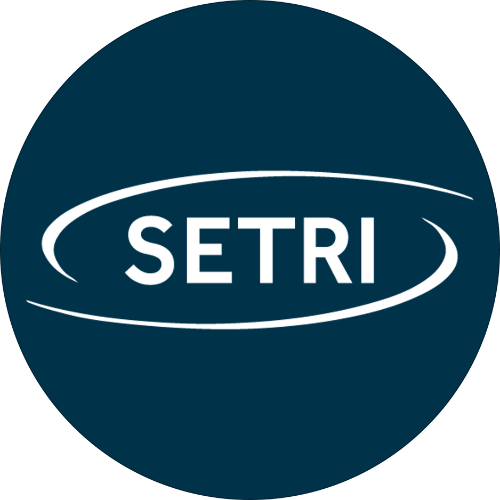



Setri Sustentabilidad BIC SAS

Cundinamarca Department, Colombia
November 2023
Management consultant - for-profits
Service with Minor Environmental Footprint
Colombia,
Ecuador,
Honduras,
Panama,
Peru,
United States,
Venezuela
En Setri creemos en la importancia de la excelencia técnica, el compromiso con el desarrollo sostenible, la colaboración y la innovación. Nuestra misión es servir a Colombia y la región con servicios diferenciadores y disruptivos, respaldados por una excelencia técnica que impulsa el desarrollo sostenible. Proporcionamos servicios integrales en sostenibilidad, desde certificaciones (LEED, EDGE, CASA, WELL, Fitwel) hasta el comisionamiento y auditorías (energía, agua, calidad ambiental). También ofrecemos asesoría en eficiencia energética y programas de capacitación abordando temas clave como construcción sostenible y huella de carbono. Nuestro enfoque innovador se materializa a través de un equipo multidisciplinario de ingenieros acreditados, incluyendo perfiles como mecánicos, eléctricos, civiles y ambientales. Los resultados son contundentes: 200+ proyectos certificados en construcción sostenible, ahorros notables de más de 7 millones de dólares en beneficios tributarios, y la reducción de más de 2 mil toneladas de CO2 equivalente. Somos la primera empresa en Colombia LEED Proven Provider y nuestros profesionales son LEED Fellow. ¿Estás listo para descubrir el potencial sostenible de tus proyectos?
Overall B Impact Score
Governance 20.9
Governance evaluates a company's overall mission, engagement around its social/environmental impact, ethics, and transparency. This section also evaluates the ability of a company to protect their mission and formally consider stakeholders in decision making through their corporate structure (e.g. benefit corporation) or corporate governing documents.
What is this? A company with an Impact Business Model is intentionally designed to create a specific positive outcome for one of its stakeholders - such as workers, community, environment, or customers.
Governance 20.9
Governance evaluates a company's overall mission, engagement around its social/environmental impact, ethics, and transparency. This section also evaluates the ability of a company to protect their mission and formally consider stakeholders in decision making through their corporate structure (e.g. benefit corporation) or corporate governing documents.
What is this? A company with an Impact Business Model is intentionally designed to create a specific positive outcome for one of its stakeholders - such as workers, community, environment, or customers.
Workers 31.2
Workers evaluates a company’s contributions to its employees’ financial security, health & safety, wellness, career development, and engagement & satisfaction. In addition, this section recognizes business models designed to benefit workers, such as companies that are at least 40% owned by non-executive employees and those that have workforce development programs to support individuals with barriers to employment.
Community 16.3
Community evaluates a company’s engagement with and impact on the communities in which it operates, hires from, and sources from. Topics include diversity, equity & inclusion, economic impact, civic engagement, charitable giving, and supply chain management. In addition, this section recognizes business models that are designed to address specific community-oriented problems, such as poverty alleviation through fair trade sourcing or distribution via microenterprises, producer cooperative models, locally focused economic development, and formal charitable giving commitments.
Environment 35.1
Environment evaluates a company’s overall environmental management practices as well as its impact on the air, climate, water, land, and biodiversity. This includes the direct impact of a company’s operations and, when applicable its supply chain and distribution channels. This section also recognizes companies with environmentally innovative production processes and those that sell products or services that have a positive environmental impact. Some examples might include products and services that create renewable energy, reduce consumption or waste, conserve land or wildlife, provide less toxic alternatives to the market, or educate people about environmental problems.
What is this? A company with an Impact Business Model is intentionally designed to create a specific positive outcome for one of its stakeholders - such as workers, community, environment, or customers.
Customers 3.5
Customers evaluates a company’s stewardship of its customers through the quality of its products and services, ethical marketing, data privacy and security, and feedback channels. In addition, this section recognizes products or services that are designed to address a particular social problem for or through its customers, such as health or educational products, arts & media products, serving underserved customers/clients, and services that improve the social impact of other businesses or organizations.